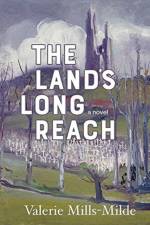- Ecofeminism and the Land Question
277
Climate change is already under way with unpredictable consequences. Evidence of changes to the earth's physical, chemical and biological processes is obvious everywhere. Greenhouse gas emissions have increased the carbon cycle concentration in the atmosphere. In the past, half of this carbon was stored in forests, while the other half was removed by oceans, but with deforestation and warming oceans, oxygen is at its lowest breathable point. Ecological degradation is global and the earth is becoming increasingly inhospitable with unprecedented weather events. The changing temperature has altered the balance of communities and degraded ecosystems. For example, in May 2016, as a result of a drier winter combined with an unusually hot, dry air mass over Northern Alberta, Canada, the temperature climbed to 32.8 °C (91°F) (Daily Data Report) resulting in 49 active wildfires covering an estimated 522,892 hectares. During the summer of 2017, hundreds of wildfires also razed thousands of hectares in the provinces of British Columbia, Manitoba, and Saskatchewan.More destructive events due to warmer ocean surface temperatures are also taking place. Warmer oceans hold less dissolved gases, including oxygen, which affects marine organisms, particularly mammals. In January 2014, in Peru's Pacific, more than 400 dolphins washed ashore dead (Foley); similarly, in New Zealand, in February 2017, more than 400 whales had beached themselves to die (Farewell). El Niño, which is a cold, low-salinity ocean current that runs along Ecuador, Peru, and Chile, has been heating and altering weather in all Pacific Rim countries. Each of the El Niño and La Niña cycles in the past twenty years have occurred with increased frequency and violence.In sum, the latest scientific evidence tell us that we are approaching climate catastrophe: global average temperature is rising, if another decade of business-as-usual fossil fuel emissions continues we can reach 2° C, a dangerous warming threshold. Climate change deepens ethical issues explored and discussed by ecofeminists around the world. This book describes the academic field of material ecofeminism, provides an overview of the land question, and explores how reigning discourses of "sustainable development" have led to a commodification of nature and have effaced the multiple visions, uses, and relationships of local human communities. The articles in this book are spaces of political projects and values that nurture anticapitalist, antipatriarchal, and anticolonial oppressions. We argue that the centrality of resisting the colonization of Mother Earth and Pachamama is supreme.






























